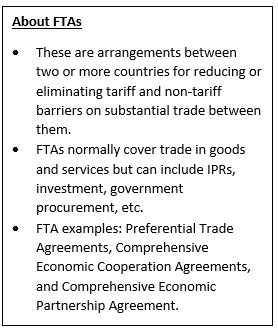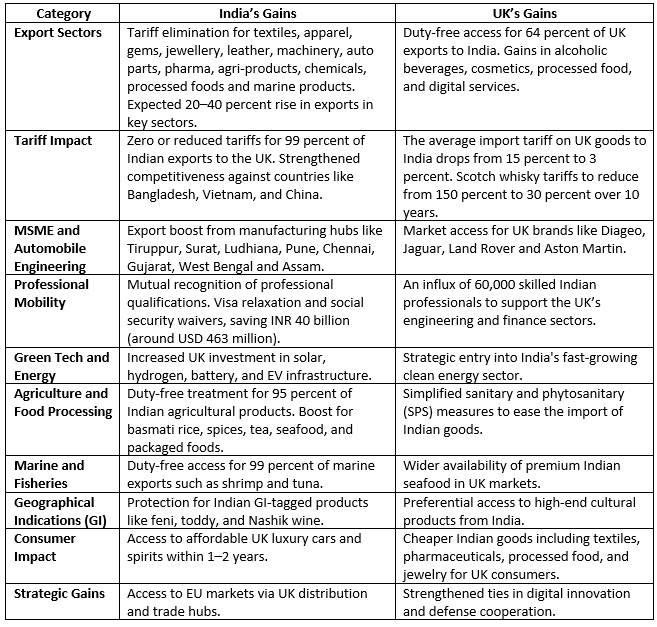SYLLABUS
GS-2: Bilateral, Regional, Global groupings and Agreements
Context:
Recently, the Prime Minister of India and the UK Prime Minister signed the much-anticipated Free Trade Agreement (FTA) in London.
More on the News
• The CETA promises tariff reductions and expanded market access. This deal, finalised after over three years of negotiations, aims to double trade between the two nations by 2030.
- CETA is a type of free trade agreement that promotes broad economic cooperation between countries by covering trade in goods and services, investment, and the removal of non-tariff barriers.
• The agreement with India is the UK’s biggest and most economically significant new bilateral FTA since leaving the EU.

• Under the agreement, both countries aim to increase annual bilateral trade by £25.5 billion (US$34.5 billion) and have committed to doubling trade to US$120 billion by 2030, with an additional US$40 billion projected by 2040.
• The two countries have finalized a Social Security Agreement to prevent Indian professionals working in the UK for a short time from paying social security contributions in both countries.
• However, discussions on the Bilateral Investment Treaty (BIT) are still in progress.
Key Features of the India-UK Free Trade Agreement

Significance of an India-UK FTA
- Shape other FTAs: It will become template for India’s trade pacts with the European Union (EU) and other countries.
- Increased Exports: India’s exports like pharmaceuticals, electronics and textiles will see a boost, leading to greater investment activity and job creation.
- Services Trade: India’s services exports in sectors like telecommunications and business will benefit from a liberalised and competitive services regime.
- Geoeconomic shifts: UK’s Brexit, India’s opting out of the Regional Comprehensive Economic Partnership (RCEP), and the uncertainty caused by recent US trade policies has led both to explore newer markets, for which FTAs are critical.
Challenges
- Tariff & Sensitive Goods: India agreed to slashed duties on UK goods like cars and whisky, but access is limited by quotas and phased reductions. This raises concern for Indian manufacturers in those sectors.
- Intellectual Property: Critics warn that the agreement includes stronger patent protections that could limit India’s ability to produce affordable generic medicines.
- MSMEs & Rules of Origin: Small Indian firms face high compliance costs to meet UK standards. Many are unaware of RoO rules, which may lead to missed tariff benefits.

